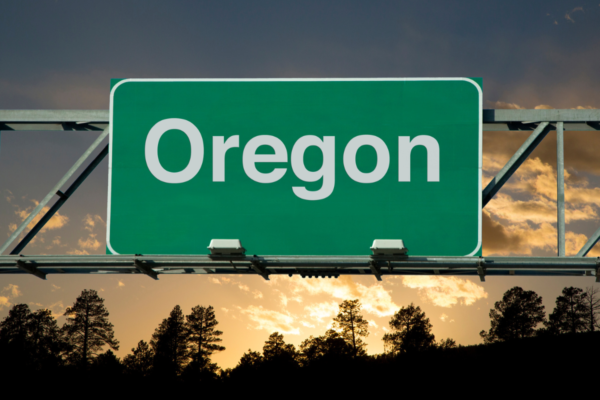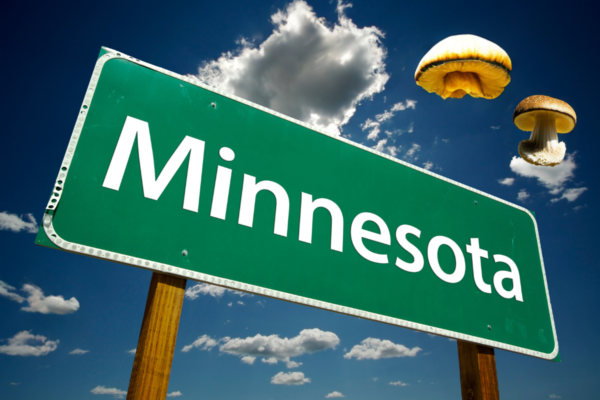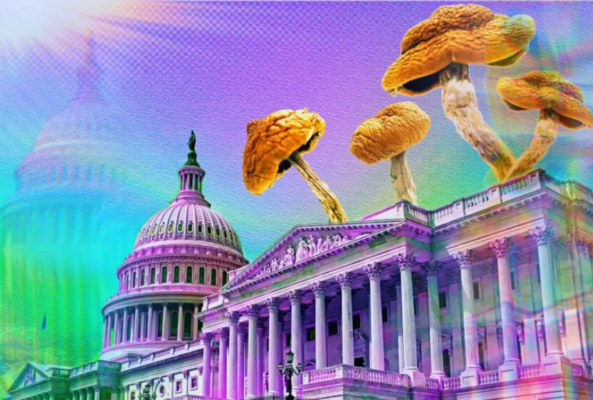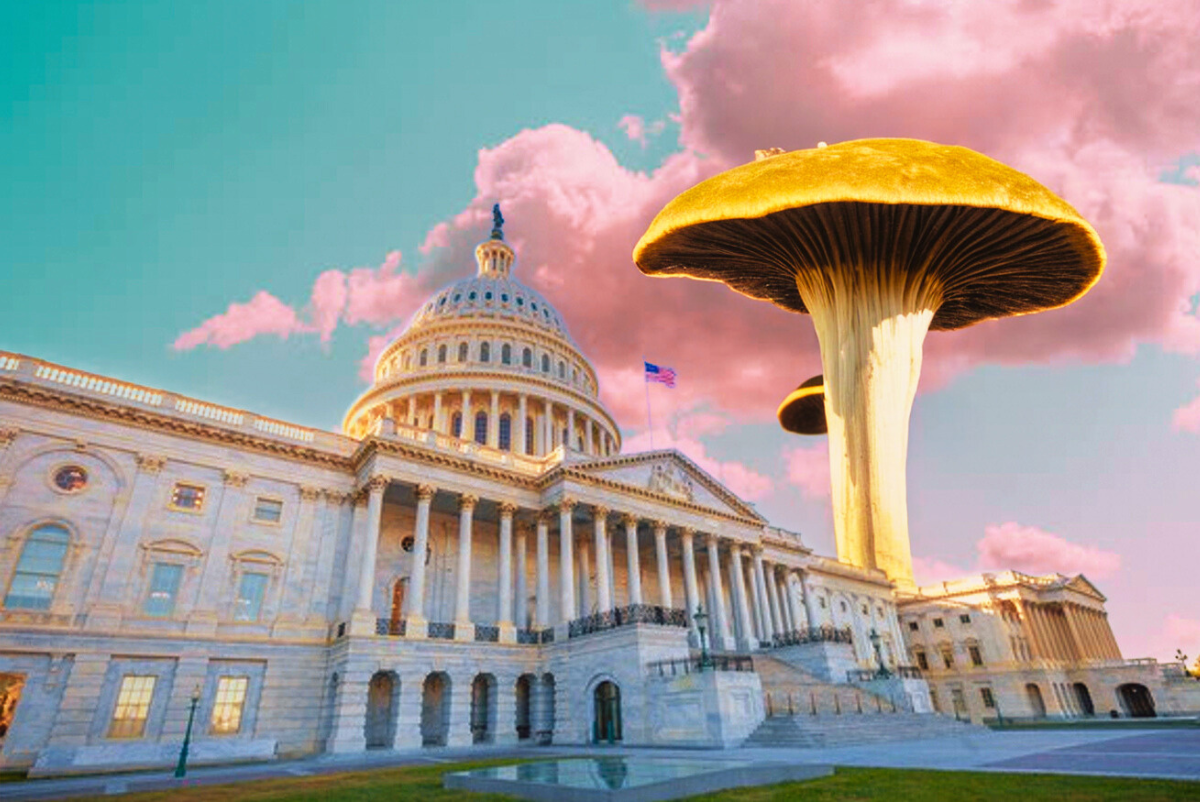
Oregon is at the forefront of the psychedelics industry, focusing on therapeutic use with the hoped to tap into the projected $6.85 billion global psychedelics market by 2027. However, one of the organizations authorized by the Oregon Health Authority for psilocybin training has received a second warning from the state. Meanwhile, Minnesota is working on establishing a task force to explore the therapeutic potential of psychedelics but has faced setbacks in key appointments and meeting initiation. In Nevada, lawmakers introduced a bill to decriminalize psilocybin, but they only established a working group.
Oregon Pioneers the Psychedelics Boom: Economic Potential Meets Mental Health Innovation
Oregon is leading the way in the burgeoning psychedelics industry, with a focus on therapeutic use. The state has decriminalized small amounts of all drugs and is working on a framework for the regulated medical use of psilocybin, the active ingredient in magic mushrooms. This move is not just about liberal drug policies but is seen as a potential economic boom. The global market for psychedelics is projected to reach $6.85 billion by 2027, and Oregon wants a piece of that pie.
The state’s approach is being closely watched by entrepreneurs, investors, and policymakers. Advocates believe that psychedelics can offer a solution to the mental health crisis, especially as traditional treatments often fall short. Critics, however, caution about the potential risks and the need for rigorous scientific research.
HECC Issues Second Warning to Myco-Method: The Intersection of Psilocybin Therapy and Spirituality

Myco-Method is among the 22 organizations authorized by the Oregon Health Authority to provide training for facilitators who guide individuals through their experience with psilocybin. Recently, the organization received its second warning from the state’s Higher Education Coordinating Commission to cease and desist its operations until it gets a license or an exemption from licensure.
According to Willamette Week, HECC had presented an ultimatum after a lengthy email exchange with Veronica Dujon, HECC’s director of academic policy and authorization, where Shasta Winn, program director of Myco-Method, contested the state’s jurisdiction in overseeing Myco-Method. Winn argued that Myco-Method, being solely a curriculum offered by a religious organization called Saba Cooperative, should be exempt from HECC’s regulations.
The HECC is the regulatory body responsible for overseeing the use of psilocybin in therapeutic settings in the state. Established to ensure the safe and equitable use of psychedelics, the HECC is pivotal in monitoring and regulating programs like the Myco-Method. Facilitators are required to complete one of the OHA-approved programs in order to practice legally. This ensures a high level of expertise and adherence to regulations.
The Myco-Method has been under scrutiny for its unconventional approach to psilocybin therapy, which integrates spiritual and religious practices. While many proponents argue that such an approach can benefit certain individuals, critics, including the HECC, are concerned about the potential risks and the blurring of lines between therapy and religious practice.
The organization still promoted its program, saying students who undergo their training can receive a license by the state as facilitators because the curriculum has been approved by the Oregon Health Authority. However, without HECC approval, students won’t be able ask the state to reimburse their lost tuition if Myco-Method were to close its operations.
The Higher Education Coordinating Commission of Oregon has issued a warning asking that if Myco-Method persists in defying the cease-and-desist order issued in May, it will face closure.
Despite the warnings, the Myco-Method continues to have a solid following, with many patients attesting to its effectiveness. However, the HECC’s concerns highlight the ongoing debate about the role of spirituality and religion in therapeutic settings, especially when it comes to the use of powerful substances like psilocybin.
Question: As we move towards a more inclusive society, how can we ensure religious tolerance in policy-making, especially when it intersects with the therapeutic use of psychedelics?
*This article has been updated since its initial publication date*
Minnesota’s Psychedelic Task Force: Because Why Rush Progress When You Can Take It Slow?
The state of Minnesota is actively working towards the establishment of a specialized task force with the primary objective of delving into the therapeutic potential of psychedelics. This initiative, however, has faced certain setbacks, notably in the areas of key appointments and the initiation of its inaugural meeting.
According to Marijuana Moment, as of now, 20 appointments have been made out of the total 24 positions in the body. However, there are still important positions that remain unfilled, despite the legal requirement stating that they should have been filled by July 15. Additionally, the mandate to hold an initial meeting by last Monday was not met.
Amidst the formation of the task force, there have been notable voices expressing concerns about the delays. Scott Smith, a key figure involved in the initiative, remarked on the challenges faced, stating, “The delays in the formation of the task force have been a setback, especially with the absence of a chairman to guide our efforts.” His statement underscores the importance of leadership in such endeavors, emphasizing that a chairman’s role is pivotal in steering the direction and ensuring the task force’s objectives are met in a timely and efficient manner.
The broader context of this movement is significant, as it aligns with a nationwide trend. “The initiative is part of a broader movement across the U.S. to reconsider the legal status and therapeutic potential of these substances.”
The importance of such task forces cannot be overstated. They amalgamate expertise from diverse fields, ensuring a comprehensive and holistic approach to the subject at hand. In the realm of psychedelics, this means a thorough exploration of both the potential therapeutic benefits and associated risks. Such endeavors require the collective insights of medical professionals, scientific researchers, legal experts, and patient advocates.
Drawing from past experiences, the opioid crisis serves as a pertinent example of the efficacy of task forces. These dedicated groups played a pivotal role in data collection, understanding the magnitude of the crisis, and strategizing effective interventions. It underscores the necessity of a psychedelics task force in Minnesota to ensure a well-rounded and informed approach to their potential medical applications.
As the state moves forward with this significant undertaking, it’s a poignant reminder that, in endeavors of such magnitude and potential impact, sometimes it’s more prudent to prioritize accuracy and thoroughness over haste. In some cases, it’s better to get it right than to rush.
APPA Partners with BrainFutures to Promote Practical Applications of Psychedelic Research
The first-ever professional guidelines for psychedelic-assisted therapy practitioners have now been released. A joint effort produced by The American Psychedelic Practitioners Association (APPA), serving as the accreditation body for the psychedelic domain and the national association for its practitioners, and BrainFutures, a nonprofit dedicated to promoting the practical uses of brain research.
This landmark publication aims to set a standardized framework for the therapeutic use of psychedelics, ensuring both safety and efficacy for patients. As psychedelic-assisted therapy gains traction as a viable treatment for various mental health conditions, these guidelines address the pressing need for best practices.
In the announcement about the new guidelines for psychedelic therapy, Andrew Penn MS, PMHNP, from UC San Francisco School of Nursing, stated, “The Professional Practice Guidelines are an important next step in the evolution and professionalization of psychedelic therapy.” He emphasized that these guidelines aim to clarify key concepts like consent, patient screening, ethics, safety, and integration of therapy experiences, ensuring patient protection and promoting the safe use of psychedelic medicines in professional environments.
Read the full list of guidelines here.
Nevada Falls Just Shy of Decriminalizing Psilocybin Mushrooms
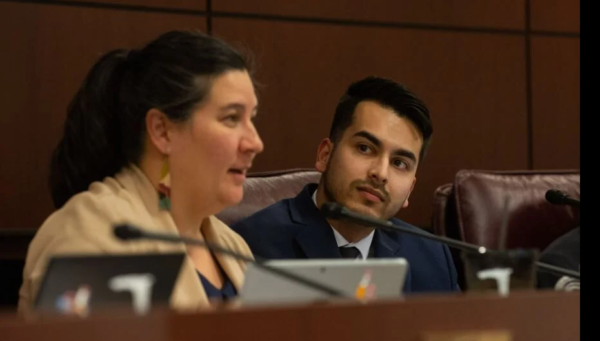
David Calvert/The Nevada Independent
Nevada’s state lawmakers introduced a bill this year to decriminalize psilocybin. However, the final version of SB242, endorsed by Republican Gov. Joe Lombardo, merely established a working group.
A working group was put in place with the goal to investigate the potential applications of psychedelics and evaluate the consequences of their decriminalization and medical legalization. This bill, which garnered bipartisan support from both the Senate and Assembly, is in line with efforts in states like Oregon and Colorado to investigate the potential mental health benefits of psychedelics. Psilocybin, the active ingredient in ‘magic’ mushrooms, can be consumed orally or brewed as tea. Despite not being labelled as addictive, the U.S. Drug Enforcement Agency categorizes it as a Schedule I substance, suggesting a high abuse potential and no recognized medical benefits.
Concerns about public safety have led to opposition from law enforcement groups despite supporters emphasizing potential benefits.
While psilocybin and other psychedelics aren’t immediately set for decriminalization, supporters remain optimistic about finding a solution that caters to everyone’s needs — from police officers and veterans grappling with PTSD to indigenous groups safeguarding their cherished traditions.
